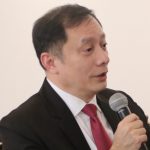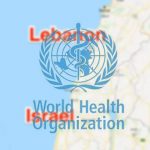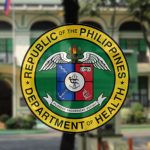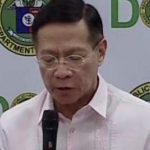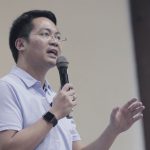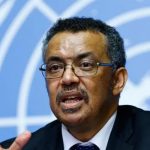SENATOR Christopher Lawrence “Bong” Go said that policies and programs that can provide economic opportunities in the provinces must be prioritized and pursued by concerned government agencies to help Filipinos recover from the current national health emergency caused by the COVID-19 pandemic.
Go also said that promoting employment and livelihood opportunities in the countryside will boost regional development consistent with the long-term goals of the Balik Probinsya, Bagong Pag-asa (BP2) Program that is set to be fully implemented after the COVID-19 crisis.
“Layunin po ng programang ito na mabigyan ng bagong pag-asa ang mga Pilipino na may hinaharap silang maayos na kinabukasan pagkatapos ng krisis at tutulungan sila kung sakaling gusto nilang bumalik sa kanilang mga probinsya,” Go explained.
“Marami nang gustong umuwi pero walang pilitan po ito. Lalo na pagkatapos ng krisis na ito kung saan karamihan ay nawalan na nga ng trabaho, huwag sana ipagkait pa sa kanila ang pag-uwi sa sariling probinsya. Ibigay dapat ang tulong na kanilang kinakailangan upang makabangon muli,” he added.
The BP2 Program Council is currently doing necessary ground preparations for subsequent roll outs, such as close coordination with the receiving local government units to give them more time to prepare for the arrival of BP2 beneficiaries who expressed willingness to relocate to their provinces for good, according to National Housing Authority General Manager and BP2 Program Executive Director Marcelino Escalada, Jr.
In the meantime, the government is prioritizing various “Hatid Tulong” initiatives for locally stranded individuals.
“Habang nilalabanan natin ang COVID-19, ihanda na rin natin ang mga probinsya para sa mga nais nang lumipat upang mabigyan ang mga Pilipino ng mas maayos na buhay pagkatapos malampasan ang krisis na ito,” he said.
Go, who is a proponent of the BP2 Program, noted that the lack of economic opportunities and good-paying jobs are reasons why countryside residents go to Metro Manila.
“Malaking dahilan po kung bakit napakaraming mga taga-probinsya ang lumuluwas ng Metro Manila ay para makahanap sila ng maayos at disenteng trabaho,” Go said.
“Ngunit marami sa kanila, nadala na o natagam sa Bisaya dahil paghihirap lang din po ang nadatnan nila sa Metro Manila imbes na mabuting buhay. Kung masisiguro rin po natin na tuluy-tuloy ang paglikha ng trabaho para sa mga kababayan sa mga probinsya, hindi na nila kailangan pumunta pa ng Metro Manila. Ito po ang dahilan kung bakit mahalaga ang partisipasyon ng lahat ng mga ahensya ng gobyerno at ng private sector dito,” he added.
To accomplish this task, the Senator mentioned that the Department of Labor and Employment and the Department of Public Works and Highways are presently studying employment policies for provinces to guarantee jobs for the locals.
“Pinag-aaralan na po ngayon ng concerned government agencies kung ano po bang maaari nating gawin para masiguro na may sapat na job opportunities para sa ating mga kababayan sa probinsya,” Go said.
To prepare them for their subsequent employment, Go added that the Technical Education and Skills Development Authority is aligning their programs and enhancing courses in agriculture, health and construction to provide training to BP2 beneficiaries and prepare them for their local and overseas employment.
TESDA-NCR Regional Director Florencio Sunico said in an interview that they will also do a thorough profiling of workers and industries to help the government in properly assisting Filipinos going back to the provinces under the BP2 Program.
Previously, Go urged TESDA to reinforce their programs in the provinces and make them attuned and updated to the changing business requirements in the countryside. He also urged them to coordinate their efforts and collaborate with various government agencies, such as the Department of Trade and Industry and the National Economic and Development Au-thority as well as the local government units, to match skills with the jobs that will be made available in the provinces.
“This is to ensure that the technical and vocational education as well as the skills trainings offered in a particular province match with what is needed in that locality,” Go said.
Go also mentioned that government synergy will be a key factor in helping Filipinos recover from the crisis. He said that the success of BP2 Program will also depend on the widespread and active participation of key government agencies in boosting economic opportunities in the provinces.
Affirming this strategy of the BP2 Program, the program is expected to involve an increasing number of national government agencies as well as local government units and the private sector. In a June 4 meeting of the BP2 Program Council, it has been suggested that the Union of Local Authorities of the Philippines, Commission on Population and Development and Philippine Economic Zone Authority will also be engaged more closely.
The Council for the Welfare of Children has also signified its intention to become part of the BP2 Program Council. The Cabinet Officers for Regional Development and Security (CORDS) is also envisioned to become a vital advisory council of the BP2 Program.
As of June 11, 2020, a total of 86,871 individuals submitted application to be part of the BP2 Program. The top ten provinces with most applicants are Leyte, Samar, Negros Occidental, Northern Samar, Camarines Sur, Eastern Samar, Zam-oanga del Norte, Bohol, Pangasinan and Southern Leyte.
Executive Order No. 114 institutionalizes the program as a “Pillar of Balanced Regional Development, Creating a Council Therefor, and for Other Purposes.” It instructs concerned agencies to prepare and implement the BP2 Program.
“Ngayon, merong Executive Order 114 na nag-institutionalize nito. Meron ding inter-agency council na mangangasiwa at magpapatupad nito. Whole-of-government na ang approach ngayon,” he explained.
The EO came after Go authored Senate Resolution No. 380 which was adopted by the Senate during its plenary session on May 4, urging the executive department to formulate and implement the BP2 program.
According to the EO, the BP2 Program will bring “balanced regional development and equitable distribution of wealth, resources, and opportunities through policies and programs that boost countryside development and inclusive growth.”
The program will also provide adequate social services to its people, promote employment, and focus on key areas, such as empowerment of local industries, food security, and infrastructure development in rural areas.




